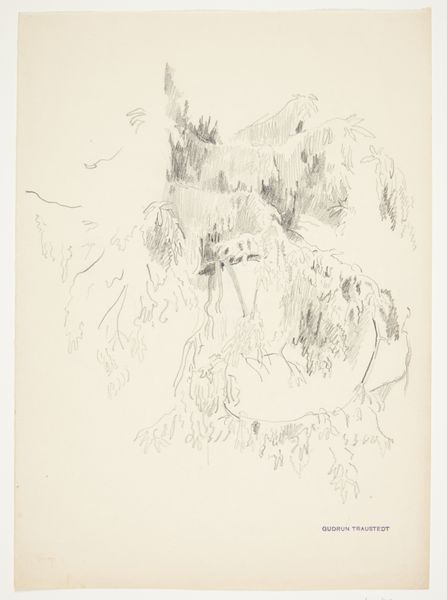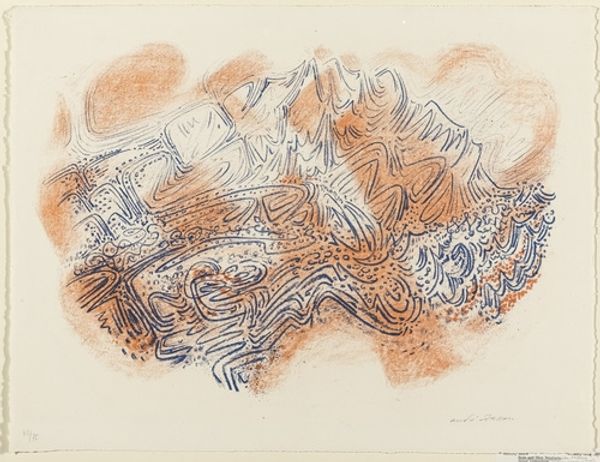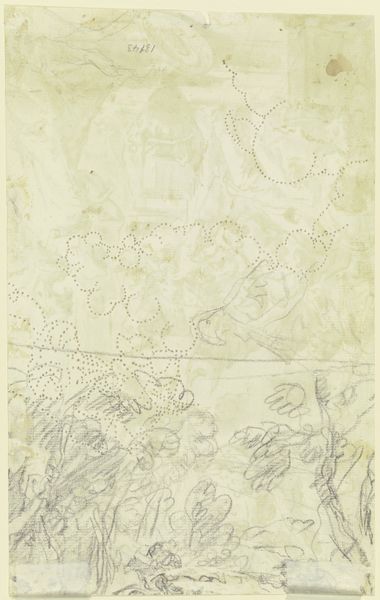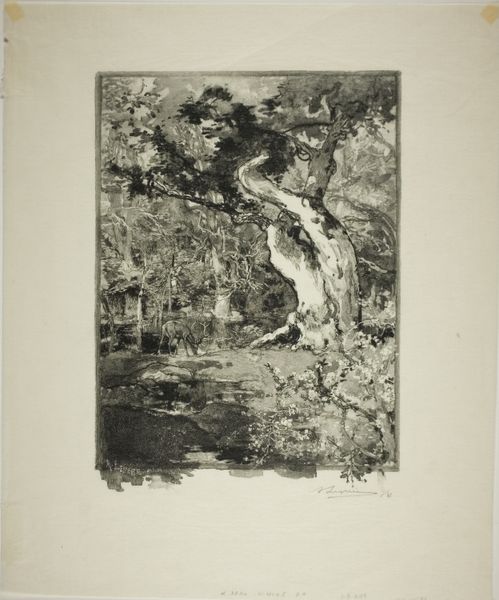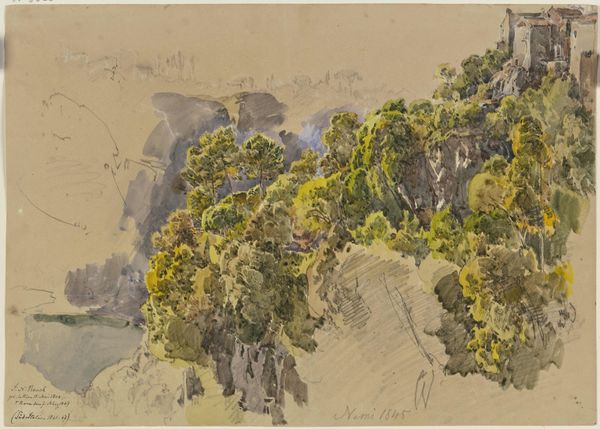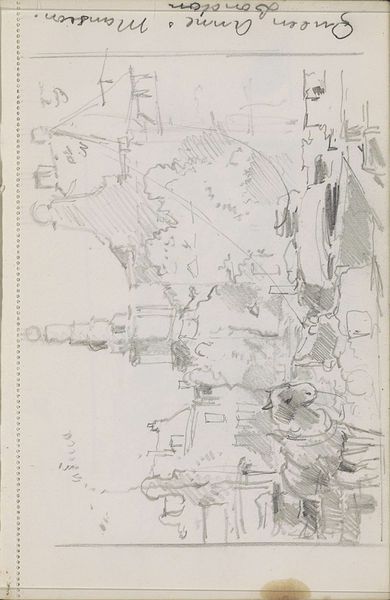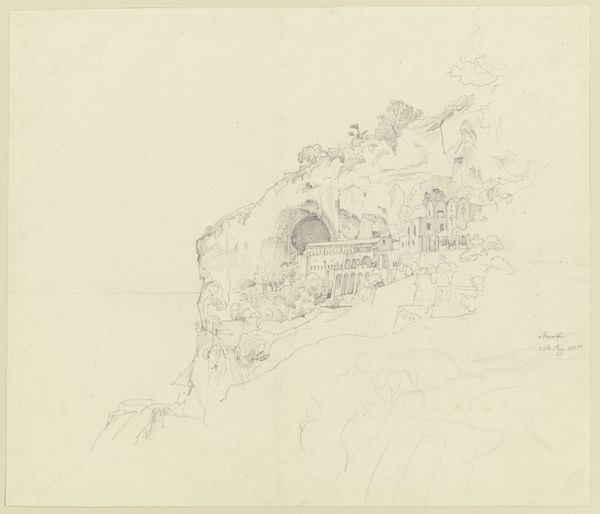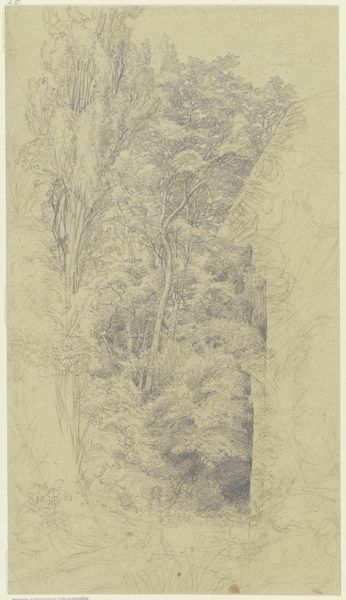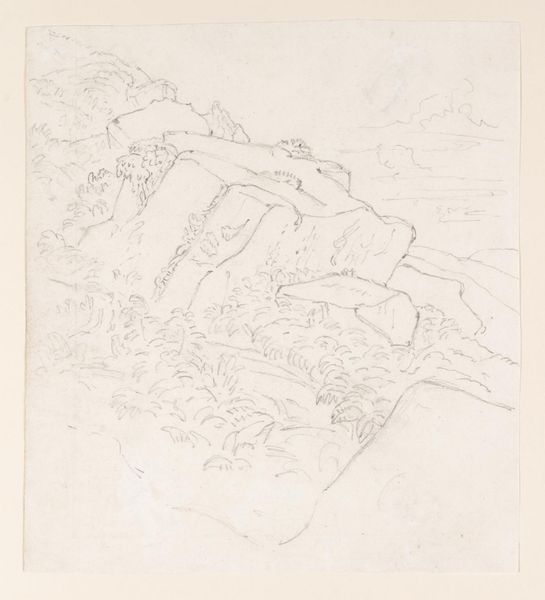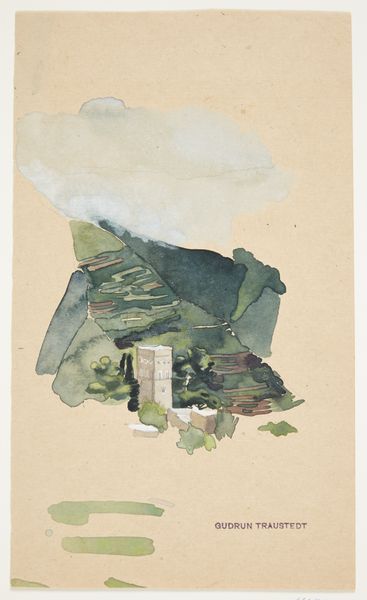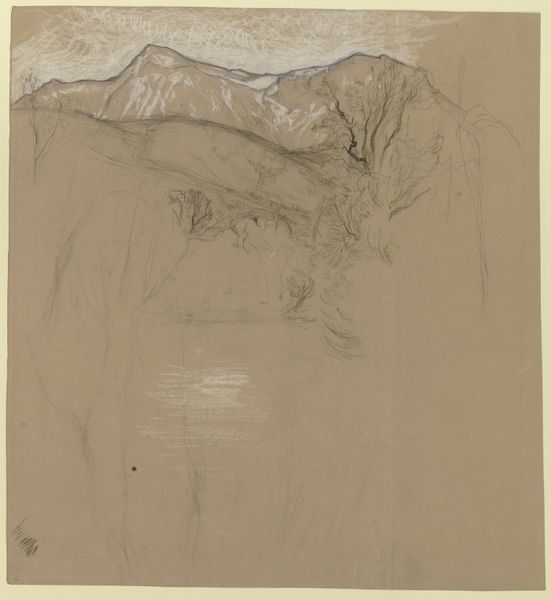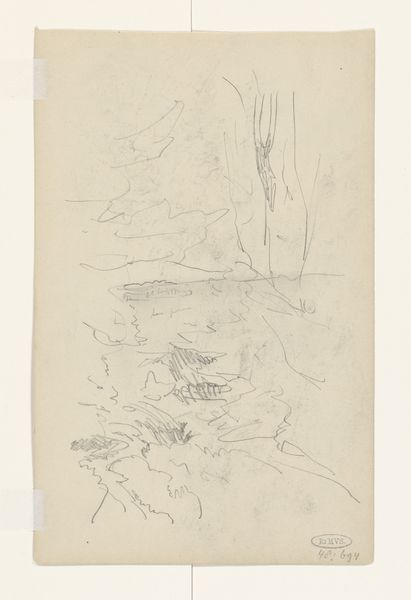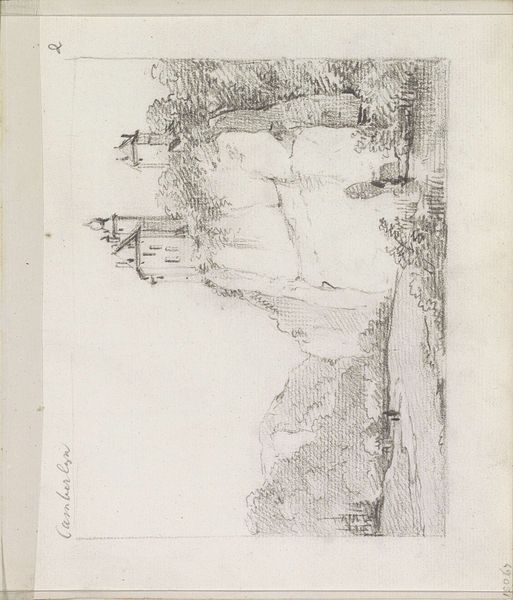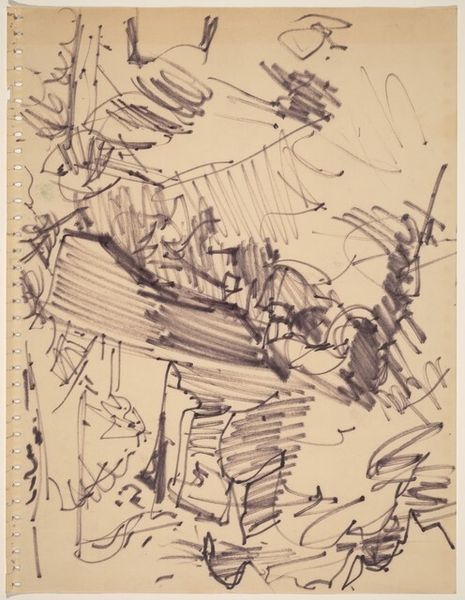
drawing, coloured-pencil, ink
#
17_20th-century
#
landscape illustration sketch
#
drawing
#
organic
#
coloured-pencil
#
landscape
#
ink
#
german
#
botanical drawing
#
abstraction
#
sketchbook drawing
#
watercolor
Copyright: Public Domain
Editor: Here we have August Babberger’s "Study of Plants," created sometime in the 20th century. It’s a colored pencil and ink drawing on paper, currently held in the Städel Museum. I’m really struck by the almost abstract way he’s depicted these natural forms. It feels both detailed and dreamlike at the same time. What can you tell me about this piece? Curator: It's fascinating how Babberger uses these simple materials to create a world that feels both recognizable and slightly off-kilter. Consider the social context of early 20th-century Germany. Artists were grappling with the rapid industrialization and urbanization of society, leading to a renewed interest in the natural world as a source of solace and escape. Editor: That makes sense. I can see how a chaotic and rapidly changing world would prompt a turn to nature. Curator: Precisely. But this isn’t just a straightforward representation of plants. It's been suggested that Babberger explores the inherent tensions within organic forms, mirroring perhaps, the tensions within society at that time. Does the seeming abstraction resonate with that interpretation? Editor: Definitely! I can see it now. The loose, almost fragmented shapes hint at a deeper unrest, maybe a questioning of traditional artistic representation itself. Curator: Exactly! And think about how institutions, like museums, have traditionally categorized landscape art. Does Babberger fit neatly into that established order? Editor: I don’t think so. It's like he's pushing the boundaries of what a "landscape" can be, making us question our expectations. Curator: Right. The 'politics of imagery' are at play, aren't they? It makes you wonder about the role of art in challenging and reshaping our understanding of the world. I also learned a lot about Babberger, that landscape, and time. Editor: Absolutely, I completely agree.
Comments
No comments
Be the first to comment and join the conversation on the ultimate creative platform.
